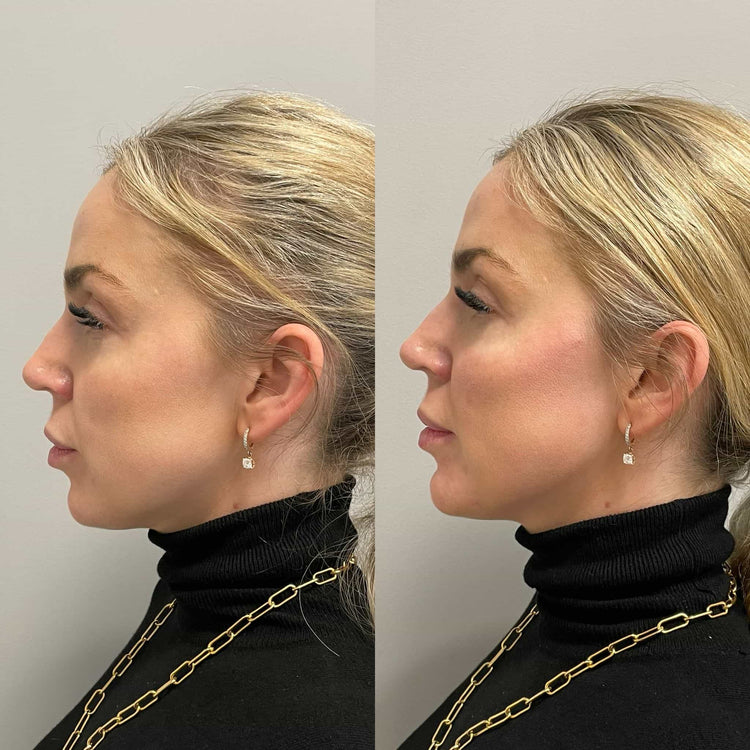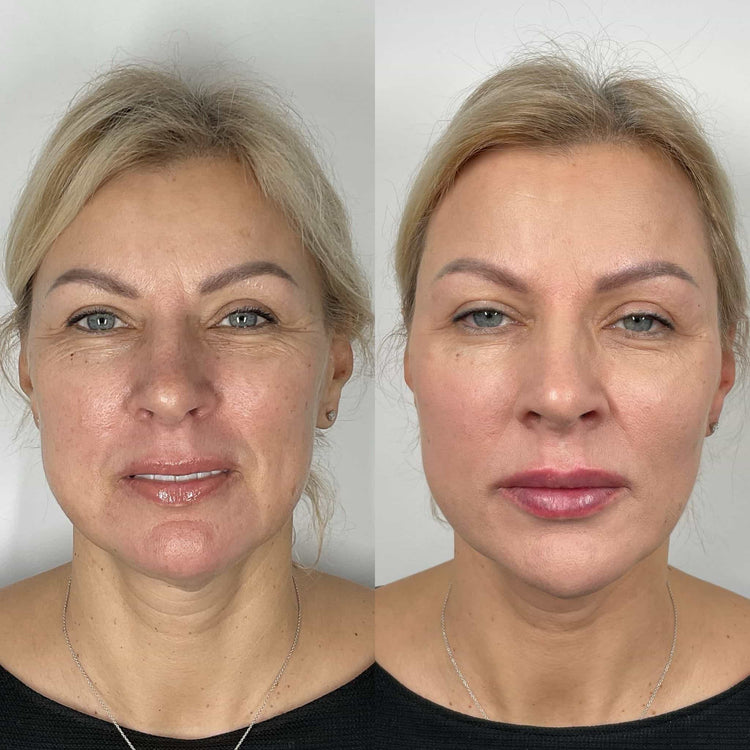How To Prepare For Your Non-surgical Liquid Facelift Procedure
May 24, 2025
Pre-Procedure Preparations
Preparing for a non-surgical liquid facelift is an important step in ensuring a successful and comfortable experience. This involves taking certain steps beforehand to optimize results and minimize any potential discomfort.
Hydration
Proper hydration plays a crucial role in the success of your liquid facelift procedure. In the days leading up to your appointment, aim to increase your water intake significantly. This helps to plump up the skin, making it more receptive to the injections and potentially reducing bruising. It’s also important to avoid alcohol and caffeine, as these substances can dehydrate you.

Diet Adjustments
Diet adjustments are also important for preparing for your liquid facelift. It is generally recommended to avoid taking aspirin or ibuprofen in the week leading up to your procedure, as these medications can increase bleeding risk.
Eating a healthy, balanced diet rich in fruits and vegetables in the days before your appointment can promote overall skin health and improve its elasticity.
Medication Review

Medication review is a vital part of pre-procedure preparation for your liquid facelift. Your practitioner will need to know about all medications and supplements you are currently taking, including over-the-counter drugs and herbal remedies.
Be sure to disclose any allergies you have, especially to medications or anesthetic agents. This information allows your practitioner to make informed decisions about your treatment plan and minimize potential risks.
Avoidance of Certain Activities
Certain activities should be avoided in the days leading up to your liquid facelift procedure. Avoiding smoking and tanning is crucial as these activities can impair blood circulation and increase the risk of complications, such as bruising and swelling.
Strenuous exercise should also be limited or avoided for a few days before the procedure, as it can elevate heart rate and increase blood flow, potentially leading to increased bleeding.
Post-Procedure Care
Preparing for a non-surgical liquid facelift involves several key steps to ensure optimal results and minimize any potential discomfort. Proper hydration is crucial, so aim to increase water intake in the days leading up to your appointment. Avoiding alcohol and caffeine is also important as they can dehydrate you.
Ice Application and Compression
After your non-surgical liquid facelift procedure, proper post-procedure care is essential for optimal healing and results. Ice application and compression play a crucial role in managing swelling and discomfort.
Apply ice packs wrapped in a towel to the treated areas for 15-20 minutes at a time, several times a day. This helps constrict blood vessels, reducing swelling and inflammation.
Compression garments or bandages as recommended by your practitioner can also help minimize swelling and provide support to the treated areas.
Remember to follow all post-procedure instructions provided by your practitioner carefully.
Follow-Up Appointments
Post-procedure care is essential for a successful non-surgical liquid facelift. Following your procedure, you’ll likely be given specific instructions by your practitioner. Adhering to these guidelines will help promote healing and optimize results.
After your treatment, it’s crucial to apply ice packs wrapped in a towel to the treated areas for 15-20 minutes at a time, several times a day. Ice helps constrict blood vessels, minimizing swelling and inflammation. Your practitioner may also recommend compression garments or bandages to further reduce swelling and provide support.
Be sure to attend all scheduled follow-up appointments. These appointments allow your practitioner to monitor your progress, address any concerns, and make adjustments to your treatment plan if necessary.
Sun Protection
Sun protection is crucial after a non-surgical liquid facelift, as the treated areas may be more sensitive to sunlight.
Avoid direct sun exposure for at least two weeks following your procedure. When you do go outside, wear a broad-spectrum sunscreen with an SPF of 30 or higher, even on cloudy days.
Reapply sunscreen every two hours, and make sure to cover any exposed skin.
Skincare Routine Modifications
Sun protection is crucial after a non-surgical liquid facelift as the treated areas may be more sensitive to sunlight.
Avoid direct sun exposure for at least two weeks following your procedure. When you do go outside, wear a broad-spectrum sunscreen with an SPF of 30 or higher, even on cloudy days. Reapply sunscreen every two hours, and make sure to cover any exposed skin.
- Apply ice packs wrapped in a towel to the treated areas for 15-20 minutes at a time, several times a day.
- Use compression garments or bandages as recommended by your practitioner.
Be sure to attend all scheduled follow-up appointments. These appointments allow your practitioner to monitor your progress, address any concerns, and make adjustments to your treatment plan if necessary.
Expectations and Results
Understanding the expectations and potential results of a non-surgical liquid facelift is essential for a positive experience. This procedure aims to enhance facial contours, reduce the appearance of wrinkles and fine lines, and improve overall skin texture.
Timeline for Visible Effects
Visible effects from a non-surgical liquid facelift typically begin to appear within days to weeks after the procedure.
Initial results, such as reduced puffiness and slight contour improvements, may be noticeable within a few days.
The most significant and lasting changes usually emerge around 2 to 4 weeks post-treatment as the hyaluronic acid fillers settle into their final positions.
Keep in mind that individual results can vary depending on factors such as skin elasticity, the amount of filler used, and each person’s unique anatomy.
Maintenance Treatments
Understanding the expectations and potential results of a non-surgical liquid facelift is essential for a positive experience. This procedure aims to enhance facial contours, reduce the appearance of wrinkles and fine lines, and improve overall skin texture.
Visible effects from a non-surgical liquid facelift typically begin to appear within days to weeks after the procedure.
Initial results, such as reduced puffiness and slight contour improvements, may be noticeable within a few days.
The most significant and lasting changes usually emerge around 2 to 4 weeks post-treatment as the hyaluronic acid fillers settle into their final positions.
Keep in mind that individual results can vary depending on factors such as skin elasticity, the amount of filler used, and each person’s unique anatomy.
Maintenance treatments are often necessary to prolong the effects of a liquid facelift.
- The frequency of maintenance treatments depends on the type of filler used and individual factors such as skin metabolism.
- Touch-up appointments may be needed every 6 months to a year to maintain optimal results.
Long-Term Benefits
Understanding the expectations and potential results of a non-surgical liquid facelift is essential for a positive experience. This procedure aims to enhance facial contours, reduce the appearance of wrinkles and fine lines, and improve overall skin texture.
Visible effects from a non-surgical liquid facelift typically begin to appear within days to weeks after the procedure. Initial results, such as reduced puffiness and slight contour improvements, may be noticeable within a few days. The most significant and lasting changes usually emerge around 2 to 4 weeks post-treatment as the hyaluronic acid fillers settle into their final positions.
Keep in mind that individual results can vary depending on factors such as skin elasticity, the amount of filler used, and each person’s unique anatomy.
Long-term benefits of a liquid facelift include a refreshed and revitalized appearance. The gradual reduction of wrinkles and fine lines can help you maintain a more youthful look over time.
Maintenance treatments are often necessary to prolong the effects of a liquid facelift. The frequency of maintenance treatments depends on the type of filler used and individual factors such as skin metabolism. Touch-up appointments may be needed every 6 months to a year to maintain optimal results.
- Xela Rederm Skin Booster Treatments Near Thorpe, Surrey - January 11, 2026
- Xela Rederm Skin Booster Treatments Near Farnham, Surrey - January 9, 2026
- Will 1ml Jaw Filler Make A Difference? - January 7, 2026
